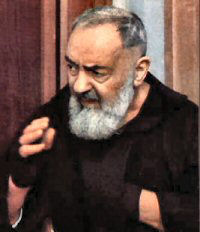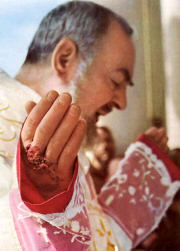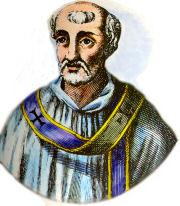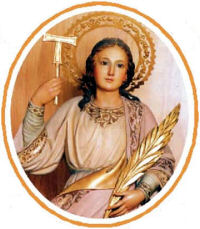4. And when much people were gathered together, and were come to him out of every city, he spoke by a parable:
5. A sower went out to sow his seed: and as he sowed, some fell by the way side; and it was trodden down, and the fowls of the air devoured it.
6. And some fell upon a rock; and as soon as it was sprung up, it withered away, because it lacked moisture.
7. And some fell among thorns; and the thorns sprang up with it, and choked it.
8. And other fell on good ground, and sprang up, and bare fruit a hundred-fold. And when he had said these things, he cried, He that has ears to hear, let him hear.
9. And his disciples asked him, saying, What might this parable be?
10. And he said, to you it is given to know the mysteries of the kingdom of God: but to others in parables; that seeing they might not see, and hearing they might not understand.
11. Now the parable is this: The seed is the word of God.
12. Those by the way side are they that hear; then comes the devil, and takes away the word out of their hearts, lest they should believe and be saved.
13. They on the rock are they, which, when they hear, receive the word with joy; and these have no root, which for a while believe, and in time of temptation fall away.
14. And that which fell among thorns are they, which, when they have heard, go forth, and are choked with cares and riches and pleasures of this life, and bring no fruit to perfection.
15. But that on the good ground are they, which in an honest and good heart, having heard the word, keep it, and bring forth fruit with patience.
THEOPHYL. That which David had foretold in the person of Christ, I will open my mouth in parables, the Lord here fulfills; as it is said, And when much people were gathered together, and were come to him out of every city, he spoke by a parable. But the Lord speaks by a parable, first indeed that He may make His hearers more attentive. For men were accustomed to exercise their minds on dark sayings, and to despise what was plain; and next, that the unworthy might not receive what was spokes mystically.
ORIGEN; And therefore it is significantly said, When much people were gathered together, and were come to him out of every city. For not many but few there are who walk the strait road, and find the way which leads to life. Hence Matthew says, that He taught without the house by parables, but within the house explained the parable to His disciples.
EUSEBIUS; Now Christ most fitly puts forth His first parable to the multitude not only of those who then stood by, but of those also who were to come after them, inducing them to listen to His words, saying, A sower went out to sow his seed.
THEOPHYL; The sower we can conceive to be none other but the Son of God, Who going forth from His Father's bosom, whither no creature had attained, came into the world that He might bear witness to the truth.
CHRYS, Now His going, Who is every where, was not local, but through the vale of the flesh He approached us. But Christ fitly denominates His advent, His going forth. For we were aliens from God, and cast out as criminals, and rebels to the king, but he who wishes to reconcile man, going out to them, speaks to them without, until having become meet for the royal presence, He brings them within; so also did Christ.
THEOPHYL. But He went out now, not to destroy the husbandmen, or to burn up the earth, but He went out to sow. For oftimes the husbandman who sows, goes out for some other cause, not only to sow.
EUSEBIUS; Some went out from the heavenly country and descended among men, not however to sow, for they were not sowers, but ministering Spirits sent forth to minister. Moses also and the prophets after him did not plant in men the mysteries of the kingdom of heaven, but by keeping back the foolish from the error of iniquity, and the worship of idols, they tilled as it were the souls of men, and brought them into cultivation. But the only Sower of all, the Word of God, went out to sow the new seed of the Gospel, that is, the mysteries of the kingdom of heaven.
THEOPHYL. But the Son of God never ceases to sow in our hearts, for not only when teaching, but creating, He sows good seed in our hearts.
TIT. BOST. But He went out to sow His seed, He receives not the word as borrowed, for He is by nature the Word of the living God. The seed is not then of Paul, or of John, but they have it because they have received it. Christ has His own seed, drawing forth His teaching from His own nature. Hence also the Jews said, How knows this man letters, having never learned?
EUSEBIUS; He teaches therefore that there are two classes of those who received the seed; the first, of those who have been made worthy of the heavenly calling, but fall from grace through carelessness and sloth; but the second, of those who multiply the seed bearing good fruit. But according to Matthew he makes three divisions in each class. For those who corrupt the seed have not all the same manner of destruction, and those who bear fruit from it do not receive an equal abundance. He wisely sets forth the cases of those who lose the seed. For some though they have not sinned, have lost the good seed implanted in their hearts, through its having been withdrawn from their thoughts and memory by evil spirits, and devils who fly through the air; or deceitful and cunning men, whom He calls the birds of the air. Hence it follows, And as he sowed, some fell by the way side.
THEOPHYL. He said not that the sower threw some on the way side, but that it fell by the way side. For he who sows taught the right word, but the word falls in different ways upon the hearers, so that some of them are called the way side: and it was trodden down, and the birds of the air devoured it.
CYRIL; For every way side is in some measure dry and uncultivated, because it is trodden down by all men, and no seed gains moisture on it. So the divine warning reaches not the unteachable heart, that it should bring forth the praise of virtue. These then are the ways frequented by unclean spirits. There are again some who bear faith about them, as if it consisted in the nakedness of words; their faith is without root, of whom it is added, And some fell upon a rock, and as soon as it sprung up, it withered away, because it lacked moisture.
THEOPHYL; The rock, he says, is the hard and unsubdued heart. Now the moisture at the root of the seed is the same as what is called in another parable, the oil to trim the lamps of the virgins, that is, love and steadfastness in virtue.
EUSEBIUS; There are also some who through covetousness, the desire of pleasure and worldly cares, which indeed Christ calls thorns, suffer the seed which has been sown in them to be choked.
CHRYS. For as the thorns do not let the seed grow up, but when it has been sown choke it by thickening round it, so the cares of this present life permit not the seed to bear fruit. But in things of sense the husbandman must be reproved who would sow amid thorns on a rock and the way side, for it is impossible that the rocks should become earth, the way not be a way, the thorns not be thorns. But in rational things it is otherwise. For it is possible that the rock should be converted into a fruitful soil, the way not be trodden down, the thorns dispersed.
CYRIL; Now the rich and fruitful ground is the honest and good hearts which receive deeply the seeds of the word, and retain them and cherish them. And whatever is added to this, And some fell upon good ground and springing up, brought forth fruit a hundred-fold. For when the divine word is poured into a soul free from all anxieties, then it strikes root deep, and sends forth as it were the ear, and in its due season comes to perfection.
THEOPHYL; For by fruit a hundred-fold, he means perfect fruit. For the number ten is always taken to imply perfection, because in ten precepts is contained the keeping, or the observance of the law. But the number ten multiplied by itself amounts to a hundred; hence by a hundred very great perfection is signified.
CYRIL; But what the meaning of the parable is, let us hear from him who made it, as it follows, And when he had said these things, he cried, He that has ears to hear, let him hear.
BASIL; Hearing has reference to the understanding. By this then our Lord stirs us up to listen attentively to the meaning of those things which are spoken.
THEOPHYL; For as often as the admonition occurs either in the Gospel or the Revelation of St. John, it signifies that there is a mystical meaning in what is said, and we must inquire more closely into it. Hence the disciples who were ignorant ask our Savior, for it follows, And his disciples asked him, &c. But let no one suppose that as soon as the parable was finished His disciples asked Him, but, as Mark says, When he was alone they asked him.
ORIGEN; Now a parable is a narration of an action as done, yet not done according to the letter, though it might have been, representing certain things by means of others which are given in the parable. An enigma is a continued story of things which are spoken of as done, and yet have not been done, nor are possible to be done, but contains a concealed meaning, as that which is mentioned in the Book of Judges, that the trees went forth to anoint a king over them. But it was not literally a fact as is said, A sower went out to sow, like those facts related in history, yet it might have been so.
EUSEBIUS; But our Lord told them the reason why He spoke to the multitudes in parables, as follows, And he said, to you it is given to know the mysteries of God.
GREG. NAZ. When you hear this you must not entertain the notion of different natures, as certain heretics do, who think that some men indeed are of a perishing nature, others of a saving nature, but that some are so constituted that their will leads them to better or worse. But add to the words, To you it is given, if willing and truly worthy.
THEOPHYL. But to those who are unworthy of such mysteries, they are obscurely spoken. Hence it follows, But to the rest in parables, that seeing they might not see, and hearing they might not understand. For they think they see, but see not, and hear indeed, but do not understand. For this reason Christ hides this from them, lest they should beget a greater prejudice against them, if after they had known the mysteries of Christ, they despised them. For he who understands and afterwards despises, shall be more severely punished.
THEOPHYL; Rightly then do they hear in parables, who having closed the senses of their heart, care not to know the truth, forgetful of what the Lord told them. He that has ears to hear, let him hear.
GREG. But our Lord condescended to explain what He said, that we might know how to seek for explanation- in those things which He is unwilling to explain through Himself. For it follows, Now the parable is this: The seed is the word of God.
EUSEB. Now He says, that there are three reasons why men destroy the seed implanted in their hearts. For some destroy the seed that is hid in them by lightly giving heed to those that wish to deceive, of whom He adds, Those by the way side are they that hear: their comes the devil, and takes away the word out of their hearts. .
THEOPHYL; Who in truth deign to receive the word which they hear with no faith, with no understanding at least with no attempt to test the value of it.
EUSEB. But some there are who having not received the word in any depth of heart, are soon overcome when adversity assails them, of whom it is added, They on the rock are they which when they hear, receive the word with joy; and these have no root, which for a while believe, and in time of temptation fall away.
CYRIL; For when the, enter the Church they gladly wait on the divine mysteries, but with infirmity of purpose. But when they leave the Church they forget the sacred discipline, and as long as Christians are undisturbed, their faith is lasting; but when persecution harasses, their heart fails them, for their faith was without root.
GREG. Many men propose to begin a good work, but as soon as they have become annoyed by adversity or temptation, they abandon what they had begun. The rocky ground then had no moisture to carry on to constancy fruit which it had put forth.
EUSEB. But some choke the seed which has been deposited in them with riches and vain delights, as if with choking thorns, of whom it is added, And that which fell among thorns are they, which, when they have heard, go forth, and are choked with cares and riches of this life, &c.
GREG. It is wonderful that the Lord has represented riches as thorns, for these prick, while those delight, and yet they are thorns, for they lacerate the mind by the prickings of their thoughts, and whenever they entice to see they draw blood, as if inflicting a wound. But there are two things which He joins to riches, cares and pleasures, for they oppress the mind by anxiety and unnerve it by luxuries, but they choke the seed, for they strangle the throat of the heart with vexatious thoughts, and while they let not a good desire enter the heart, they close up as it were the passage of the vital breath.
EUSEB. Now these things were foretold by our Savior according to His foreknowledge, and that their case is so, experience testifies. For in no wise do men fall away from the truth of divine worship, but according to some of the causes before mentioned by Him.
CHRYS. And to sum up many things in a few words. Some indeed as careless hearers, some as weak, but others as the very slaves of pleasure and worldly things, hold aloof from what is good. The order of the way side, the rock, and the thorns is well, for we have first need of recollection and caution, next of fortitude, and then of contempt of things present. He therefore places the good ground in opposition to the way, the rock, and the thorns. But that on the good ground are they, which in an honest and good heart, having heard the word, keep it, &c. For they who are on the way side keep not the word, but the devil takes away their seed. But they who are on the rock sustain not patiently the assaults of temptation through weakness. But they who are among thorns bear no fruit, but are choked.
GREG. The good ground then beans fruit through patience, for nothing we do is good unless we endure patiently our closest evils. They therefore bear fruit through patience, who when they bear strifes humbly, are after the scourge received with joy to a heavenly rest.
Catena Aurea Luke 8
 Image: Saint Pio of Pietrecina | San Sebastian Cathedral of Tarlac, Philippines | photo by Ramon FVelasquez
Image: Saint Pio of Pietrecina | San Sebastian Cathedral of Tarlac, Philippines | photo by Ramon FVelasquez
 Born to a southern Italian farm family, the son of Grazio, a shepherd. At age 15 he entered the novitiate of the Capuchin Friars in Morcone, and joined the order at age 19. He suffered several health problems, and at one point his family thought he had tuberculosis. He was ordained at age 22 on 10 August 1910.
Born to a southern Italian farm family, the son of Grazio, a shepherd. At age 15 he entered the novitiate of the Capuchin Friars in Morcone, and joined the order at age 19. He suffered several health problems, and at one point his family thought he had tuberculosis. He was ordained at age 22 on 10 August 1910.  Following the crucifixion of Peter, Linus, who had served as an assistant to the apostle, continued the leadership of the Church, for once the Christian faith had been firmly established in Rome, Peter and Paul had commended Linus to this responsibility. However, because the one-man episcopate had not yet emerged in Rome, we have no way of knowing exactly what duties were expected of Linus. In a letter directed to the Oriental churches, Linus told how Peter's body was taken from the cross by Marcellus, bathed in milk and wine, and embalmed with precious spices.
Following the crucifixion of Peter, Linus, who had served as an assistant to the apostle, continued the leadership of the Church, for once the Christian faith had been firmly established in Rome, Peter and Paul had commended Linus to this responsibility. However, because the one-man episcopate had not yet emerged in Rome, we have no way of knowing exactly what duties were expected of Linus. In a letter directed to the Oriental churches, Linus told how Peter's body was taken from the cross by Marcellus, bathed in milk and wine, and embalmed with precious spices. This child of St. Paul is honored by the Fathers of the Eastern Church as proto-martyr and "near apostle." Already during the second century legends concerning her were current and her grave was much visited by pilgrims. It is historically certain that she lived, but the Acts of her life are largely legendary. According to these she was born at Iconium, where she was converted to Christianity by the preaching of St. Paul. It is related that she was "accused of being a Christian by her own parents after she had refused to marry Thamiris, in order to give herself wholly to Christ. But the pyre enkindled for her burning was extinguished by a sudden downpour of rain as she threw herself into it, making the sign of the Cross. Then she fled to Antioch, where the ferocious beasts and bulls to which she was tied would do her no harm. Nor did she suffer injury during confinement in a snake pit. Because of these marvels many pagans accepted the faith. Thereafter Thecla returned to her native land, where she lived in solitude upon a hill. At the age of ninety she died a peaceful death."
This child of St. Paul is honored by the Fathers of the Eastern Church as proto-martyr and "near apostle." Already during the second century legends concerning her were current and her grave was much visited by pilgrims. It is historically certain that she lived, but the Acts of her life are largely legendary. According to these she was born at Iconium, where she was converted to Christianity by the preaching of St. Paul. It is related that she was "accused of being a Christian by her own parents after she had refused to marry Thamiris, in order to give herself wholly to Christ. But the pyre enkindled for her burning was extinguished by a sudden downpour of rain as she threw herself into it, making the sign of the Cross. Then she fled to Antioch, where the ferocious beasts and bulls to which she was tied would do her no harm. Nor did she suffer injury during confinement in a snake pit. Because of these marvels many pagans accepted the faith. Thereafter Thecla returned to her native land, where she lived in solitude upon a hill. At the age of ninety she died a peaceful death."